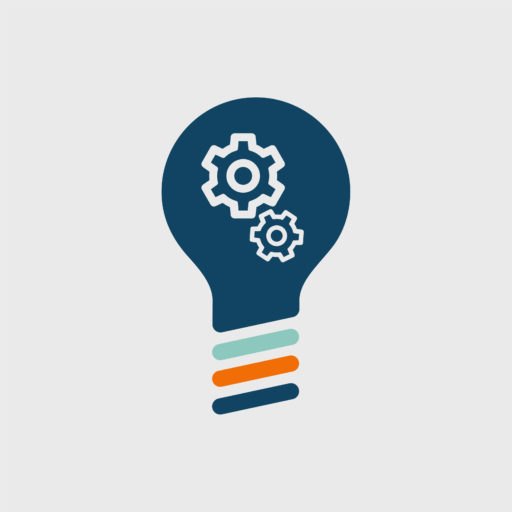Procrastination is something that can ruin your day, damage your career and negatively impact your relationships.
Often, we laugh about procrastination as though it were an amusing habit, and sometimes it can be. But that doesn’t mean it isn’t also incredibly destructive. Imagine it’s 4 pm, and you have work you desperately need to finish by 5 pm, but you can’t stop browsing Facebook or making trips to the kitchen for cups of coffee.
What happens? One option is going home very late and losing out on time with your family. Another option is that you end up not finishing the work and starting the next day incredibly behind.
Either way, this is a severe problem.
So, what can you do about it? Here are a few tricks that can help.
Start the Most Enjoyable Task First
One effective way to reduce your proneness to procrastination is first to take on the most straightforward/enjoyable task. Our natural inclination is often to handle the most challenging task first and get it out of the way.
But if you’re struggling with motivation, this will be a big uphill struggle to get yourself to commit.
Instead, if the first task is something more manageable and more fun, then you’ll find you can work more efficiently without being distracted. And once you’ve done that, you should be in a slightly more work-oriented frame of mind.
Make it More Interesting.
Procrastination often comes from one simple fact: you should be doing a tedious job, and hence you would rather be doing something else.
A straightforward solution is to make said task more enjoyable or exciting. This might mean turning letter stuffing into a game. Or it might mean providing yourself with a bit of stimulation: I will often write articles while watching videos on silent to ensure that I have a bit of motivation.
If you’re writing, try to make the topic more interesting so that you’ll be less likely to be bored. If you’re bored writing it, it’s probably not going to be great to read!
Increase Energy
Finally, note that we are more prone to procrastination when tired. Why? Because willpower requires energy, it becomes much easier to be distracted or interested in other things when you take that energy away. Give yourself more power by sleeping better, by eating supplements that boost energy levels, and by avoiding stressful events wherever possible.
When Self-Help Becomes a Negative Thing
The right self-help book or course can be a tremendously powerful tool. I have personally seen it transform people’s lives: I’ve seen people go from being nervous, shy, and unconfident and become far more naturally attractive, confident, and engaging.
But I would also argue that things have been taken a little too far. There is so much self-help literature on becoming better versions of who we are. But is it all constructive?
Why Self-Help Can be Damaging
While I’ve seen people who self-help texts have positively influenced, I’ve also seen people who they have damaged.
One of the most common ways this can happen is when self-help becomes a delay tactic. I mean that people can use self-help to delay the work they actually should be doing to improve themselves.
In other words: people will buy a self-help book and then will instantly feel as though they are making good progress toward being a better version of themselves. They’ve made an effort by buying the book after all: so they can pat themselves on the back and keep on reading.
And then they buy the next book. And the next book. And they feel great about themselves, except they haven’t changed anything.
Self-help is destructive when it ends up being a delay tactic. If you are only using it in theory and never in practice, it hinders rather than helps your progress.
Knowing Who to Trust
The other issue is that self-help can be very mixed depending on where you get it.
The problem with the internet is that anyone can contribute, and there is lots of incentive to get views and thereby earn some cash.
The problem then is that you can end up following advice based on zero evidence, which has been written by someone in no position to be giving said advice.
It’s common knowledge, for example, that visualizing your goals can help you to get what you want from life. But did you know that this only works if you correctly envision them? Some studies suggest that having a goal is much less critical than having a plan.
So question what you read, act on it, and decide what works for you.
Why You Need to Let Go of Yourself to Become the Best Version of Yourself
What is the thing that is most holding you back from being the best version of yourself?
You might be tempted to say something along the lines of ‘time,’ ‘energy,’ ‘money,’ or ‘opportunity.’ Perhaps you feel limited by other people?
I have a hunch that a big part of what’s holding you back is your sense of self. In other words: you might well be limited by your attachment to the ‘old you and your eagerness to be seen as consistent and reliable.
Why Consistency is Over-Rated
We all have an attachment to who we think we are, and we all have a notion of ourselves and who others think we are as well. For example, you may see yourself as someone lighthearted who is never serious. Or perhaps you see yourself as being a local at heart, who supports the local sports team and who would never leave home.
We like the sense of continuity that this brings, and other people like the fact that they know where they stand with us.
We don’t want to do something out of character, and we don’t want to go back on things we’ve said.
But is this something you should cling to? Maybe your concept of ‘you’ is outdated?
Adaptability is Key
If the dinosaurs taught us one thing, adaptability is the most important trait when it comes to surviving and thriving. If you can’t adapt, then the world will change around you, and you will become an anachronist.
What benefit is there for you to refuse to adapt and grow actively with that in mind?
Have you ever told someone how you felt and then changed your mind… only to think that you can’t go back on what you said?
Have you ever wanted to dress differently or take a suddenly severe tone but felt enormous pressure from people’s expectations of you?
This is a prison. And the irony is that it is a lie: the most authentic version of ‘you’ is simply the ‘you’ that you naturally want to be. The best way to be ‘you’ is to drop all expectations and act at the moment based on your emotions and your feelings.
And remember: biologically, there is no continuity. Now, the person you are is biologically utterly different from the person you were even 10 years ago. Accept it and move on.

